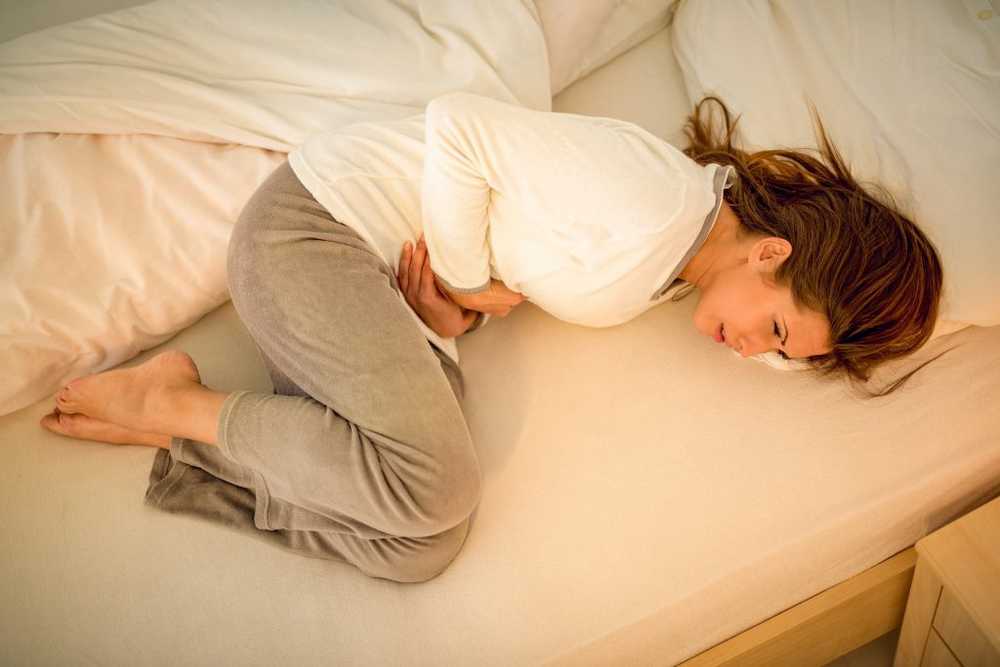Cystitis Cystitis in women often after sex

Not uncommon: cystitis due to sexual intercourse
It is not uncommon for women to suffer from cystitis after sexual intercourse. This manifests itself with pain and burning on urination and excessive urination. Some women lose the desire to have sex for fear of cystitis. That can put a strain on the relationship. Experts give answers, what to do about it.
 Pain after the act is not uncommon in some women. (Image: milanmarkovic78 / fotolia.com)
Pain after the act is not uncommon in some women. (Image: milanmarkovic78 / fotolia.com) Frequent sexual intercourse is often the cause of bladder infections, that this already exists among medical professionals a firm technical term. The so-called Honeymoon Cystitis overtakes women after intercourse. The fact that women are particularly affected is explained by the experts with their relatively shorter ureters. Here, bacteria can easily penetrate from the outside into the bladder and cause painful inflammation there.
Inflammation by coli bacteria
In most cases, cystitis in women is caused by coliforms that enter the vagina from the nearby anal area. From here, the bacteria rise to the bladder and cause the painful urinary tract infection. Women are more often affected by cystitis than men, is due to the anatomically different urethra, which is significantly shorter in women with about four centimeters than in men. Here, the invading bacteria are much easier to find their way up into the bladder. For example, most women in their lives have suffered from cystitis.
In addition to the risk factors mentioned above, such as hypothermia or sex, the experts also cite the use of intimate deodorants, chemically treated panty liners or washing lotions, which can cause allergic-inflammatory processes.
The fact that sexual intercourse can cause the urinary tract infection, it is often forgotten and only when painful urination after lovemaking remember those affected.
Typical symptoms of cystitis include persistent urinary urgency with low urine levels, pain or burning on urination, and cramping pain above the pubic bone. In addition to these clear symptoms, nonspecific episodes such as fever, diarrhea, loss of appetite and nausea and vomiting may also occur in cystitis. Sometimes the urine appears cloudy and has a changed smell. Without medical treatment, more serious complications with blood in the urine and renal pelvic inflammation threaten.
The fact that there is an increased risk of infection for women in particular during intercourse is due to the fact that the bacteria in the vagina can reach the ureter by mechanical movement and thus reach the bladder.
Medical and naturopathic treatments for cystitis
To prevent the bladder infection from spreading to the renal pelvis and kidneys, timely treatment is of great importance. The conventional treatment of cystitis is usually based on the administration of antibiotics.
If the cystitis has not yet reached a severe or advanced stage, but also recommend a variety of medicines and forms of treatment of naturopathy, with the switch to fresh and wholesome food, the absence of mucous irritating food and beverage such as coffee, tobacco, alcohol, citrus, soda drinks and spicy spices that form the basis of any naturopathic treatment.
Affected persons should drink enough liquid in the form of water or thin herbal teas. In addition, in natural medicine especially medicinal plants are administered with diuretic, antibacterial, anti-inflammatory effect for the treatment of cystitis. These include bearberry leaves, birch leaves, bucco leaves, and orthosiphon leaves.
 In naturopathy it is already known that cranberries work on urinary tract infections. (Image: Henrie / fotolia.com)
In naturopathy it is already known that cranberries work on urinary tract infections. (Image: Henrie / fotolia.com) As a herbal antibiotic and for immunomodulation also often a preparation of horseradish and nasturtium is used. On the basis of Bach flower therapy, significant successes have already been achieved in the treatment of cystitis. In addition, warmth and peace of mind for cystitis are recommended. If in doubt, those affected should also abstain from sex for a few days. (sb, fp)


